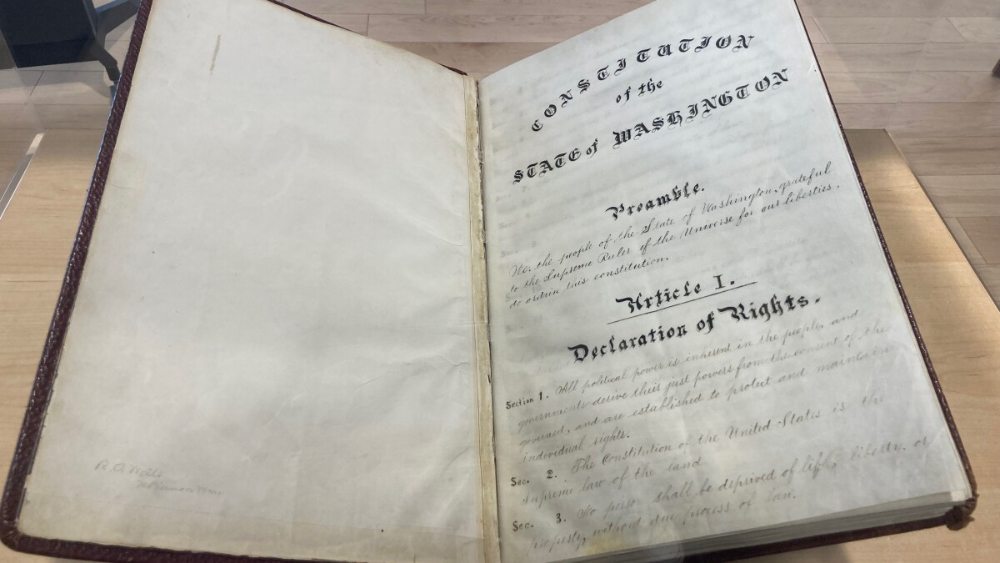On the 4th of July, 1889, 75 Territory of Washington delegates framed our state constitution in Olympia. Using the U.S. Constitution as a model, these people wrote a Declaration of Rights and established the Legislative Branch and the Executive and Judiciary.
Like the Philadelphia founding fathers, the Washington group was very careful when discussing religion. Although Jefferson, Madison, and Franklin were religious figures, they were Deists, not necessarily practicing Christians. Their broad spiritual and intellectual view, plus the experience of many colonists suffering from religious persecution, enabled the Philadelphians to firmly separate church and state. The Olympia contingent followed suit.
The preamble of Washington State’s constitution acknowledges a God, but is cautious in its fervor: “We, the people of the State of Washington, grateful to the Supreme Ruler of the Universe for our liberties, do ordain this constitution”
In Article I our rights are declared, noting that government is derived from the consent of the people, and the U.S. Constitution is recognized as the “Supreme law of the land.” Section 11 of that first article, the longest, is clear on several points: 1) absolute freedom of conscience in all matters of religious sentiment, belief, and worship; 2) religious freedom shall not be construed as an excuse to be licentious or to threaten the peace and safety of the state; and 3) no public money or property shall be appropriated for any religious purpose.
Thus, our state constitution reaffirms, without reservation, the fundamental separation of church and state. The only slight break in that posture is a provision allowing the employment of chaplains in state institutions. (The qualifications of those chaplains are not mentioned.) Article I, Section 11, also affirms that “no religious qualification shall be required for any public office or employment,” nor is a person’s religious beliefs to be questioned in a court of law.
In the 1880s, and periodically during our nation’s past, religious issues have been highlighted by the press, which have sometimes clouded the basic tenets of democracy. However, the overriding protection afforded all religions to practice their faiths, as long as they do not interfere with so-called “non-believers,” is a bulwark of free democratic society, reaffirmed in our state Constitution.
Discover more from Post Alley
Subscribe to get the latest posts sent to your email.

A timely and welcome history lesson. Thank you, Junius.
A useful reminder, but there are many difficult problems of church/government relationships, e.g., where the courts’ increasing deference to religion prohibits state efforts to stop discrimination, as in cases permitting florists and bakers to refuse “expressive” service to LGBTQ+ customers dispite clear legal prohibition of such discrimination.